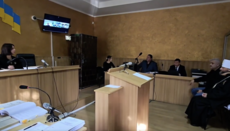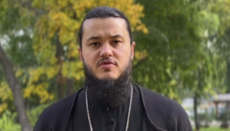ROC Synod issues an official statement regarding the Church of Greece

The ROC ceases prayerful and Eucharistic communication with those bishops of the Greek Church who recognized the OCU and retains it with those who opposed that.
On October 17, 2019, the Holy Synod of the Russian Orthodox Church issued a statement on the situation that developed in the Greek Orthodox Church after the extraordinary Bishops' Council on the “Ukrainian church issue”, which was held on October 12, 2019, reports the website of the Moscow Patriarchate.
The members of the Synod examined various documents concerning the Bishops’ Council, including the official communiqué published by the Greek Church and the report of Archbishop Ieronymos of Athens and All Greece, in which he recommends that the Greek Church recognize the schismatic “Orthodox Church of Ukraine.”
The members of the Synod decided to maintain prayerful communication with those Greek bishops who opposed the recognition of the OCU but to cease it with those who recognized the newly created church structure in Ukraine.
The parishioners of the Russian Orthodox Church are no longer blessed to make pilgrimages to the dioceses, which are run by Greek hierarchs who the ROC will cease prayerful communication with.
The full text of the statement issued by the Holy Synod of the Russian Orthodox Church at an extraordinary session on October 17, 2019, is published on the official site of the Moscow patriarchate (Journal No 125).
The members of the Synod examined various documents concerning the Bishops’ Council, including the official communiqué published by the Greek Church and the report of Archbishop Ieronymos of Athens and All Greece, in which he recommends that the Greek Church recognize the schismatic “Orthodox Church of Ukraine.”
The official statement from the Russian Holy Synod notes that the Russian Church has repeatedly informed the hierarchs of the Greek Church about the persecutions against the canonical Ukrainian Church resulting from Constantinople’s interference there and that on October 9, just 3 days before the Greek hierarchs met, Pat. Kirill addressed Abp. Ieronymos with a fraternal message, calling on him not to make any unilateral and hasty decisions, but rather to wait until the Holy Spirit gathers the primates of all the Local Churches together to solve the problem in a spirit of unity and conciliarity.
“It is sad that his Beatitude Archbishop Ieronymos bases the necessity of hasty and unilateral recognition of the non-canonical schismatic community on a number of erroneous and false arguments repeatedly refuted not only by the hierarchs, scholars and theologians of the Russian Orthodox Church, but also by many prominent archpastors, pastors and theologians of the Greek Orthodox Church,” the statement reads.
The report goes on to examine the many faults of Abp. Ieronymos’ report that he presented to the Bishops’ Council and recalls the stance of several Greek hierarchs who have openly spoken against taking any action regarding the recognition of the OCU, calling instead to convene a pan-Orthodox council to examine the matter.
The Synod also notes the confusion caused by media reports that the Greek Church recognized the OCU, which is not supported by the text of Greek communiqué, and that no vote on the matter of recognition even occurred at the meeting of the Greek bishops. Thus there are serious concerns that the Orthodox Church’s conciliar way of making decisions was violated.
“If the Ukrainian schism is truly recognized by the Greek Orthodox Church or its primate—in the form of a joint service, liturgical commemoration of the leader of the schism, or sending him official letters—it will be a sad testimony to the deepening division in the family of Local Orthodox Churches,” the Synod continues.
“The full responsibility for this division will fall, first of all, on Patriarch Bartholomew of Constantinople and on those external political forces in whose interests the Ukrainian split was ‘legalized,’” the report further reads.
However, geopolitical interests “will not destroy the centuries-old friendship of the Greek and Slavic peoples, paid for with the blood of Russian soldiers and hardened in the common struggle for the freedom of the fraternal Greek people”.
The Russian hierarchs “cherish the prayerful communion with our brethren in the Greek Orthodox Church and will maintain a living prayerful, canonical and Eucharistic connection with it—through all those archpastors and pastors who have already spoken out or will further oppose the recognition of the Ukrainian schism, who will not stain themselves by concelebrating with the schismatic false hierarchs, but will show an example of Christian courage and firm stand for the truth of Christ”.
At the same time, the canons of the Church condemn those who pray or concelebrate with those who are defrocked or excommunicated, and thus the Russian Church “ceases prayerful and Eucharistic communication with those bishops of the Greek Church who have entered or will enter into such communication with representatives of the Ukrainian non-canonical schismatic communities”.
Several hierarchs of the Greek Church have already concelebrated with hierarchs of the schismatic Ukrainian group.
The Russian Synod’s statement concludes: “The Holy Synod of the Russian Orthodox Church authorizes His Holiness Patriarch Kirill of Moscow and all Russia to stop commemorating the name of His Beatitude the Archbishop of Athens and All Greece in the diptychs if the primate of the Greek Church begins to commemorate the head of one of the Ukrainian schismatic groups during Divine services or takes other actions testifying to his recognition of the Ukrainian Church schism.”
We recall that on October 12, 2019, the Greek Orthodox Church recognized the OCU.





